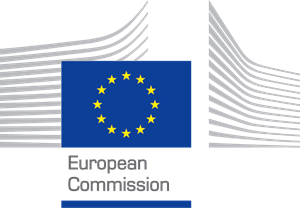Facilitating the substitution of fossil-based resources using novel enzymatic technology.

Project VALUABLE: Valorization of fungal biomass using novel enzymatic technology.
Biomass is at the core of the bioeconomy and the demand for it is increasing worldwide as we transition to a low-carbon economy. Biomass is predominantly used for feed and food products (~55% of global biomass available) followed by bioenergy, with only 8% to date used for bio-based materials despite offering an alternative to fossil-derived chemicals.
To promote the development and commercialization of bio-based materials, an abundance of feedstocks (i.e., sugar, starch, vegetable oil and ethanol) are required. However, this may lead to biodiversity and land use change as potentially more land would be needed to enable the replacement of fossil raw materials, estimated at an additional 2.8 billion tones (Bt) Dry Matter (DM) biomass per year, which competes with food and feed production.
To achieve a sizeable and economically feasible bioeconomy, new technologies are therefore needed to diversify and deliver processes that can use available, underutilized and more sustainable biomass feedstocks to leave more land available for biodiversity protection and food production, whilst facilitating the substitution of fossil-based resources with bio-based ones.
VALUABLE is focused on the demonstration of a platform non-plant-based biomass valorization process to produce yeast oils as a viable substitute for fossil-based and plant-based products (such as palm oil) in applications such as cosmetics, adhesives and resins. More specifically, the VALUABLE process aims to valorize Aspergillus niger biomass feedstock to demonstrate:
1) Techno-economic viability of producing oils as a substitute for fossil based and plant-based products for applications in cosmetics and bio-based chemicals (e.g., resins for coatings) markets.
2) Better valorization of fungal biomass waste streams rich in chitin to produce non-animal derived chitosan and chitosan oligomers for use in applications such as cosmetics and bio-based chemicals (e.g., adhesives) markets.
Our main tasks
-
- Environmental assessment
-
- Social impact assessment
-
- Integrated assessment
-
- Optimization of the enzymatic solubilization process
-
- Model substrate and optimization of process parameters
-
- Exploitation questionnaire
-
- Standards and regulatory aspects
-
- Exploitation strategy and plan
-
- VALUABLE project communication
-
- VALUABLE impact monitoring and assessment
Partners
BIOLOG HEPPE | CHIMAR HELLAS | EVONIK | GLOBAL SUSTAINABLE TRANSFORMATION | IDENER.AI | MEGARA RESINS | NORWEGIAN UNIVERSITY OF LIFE SCIENCES | SINTEF | TECHNISCHE UNIVERSITÄT MÜNCHENStart date – finish date
09 / 2022 - 08 / 2025

This project has received funding from the European Union’s Horizon 2020 research and innovation programme under grant agreement Nº 101059786

